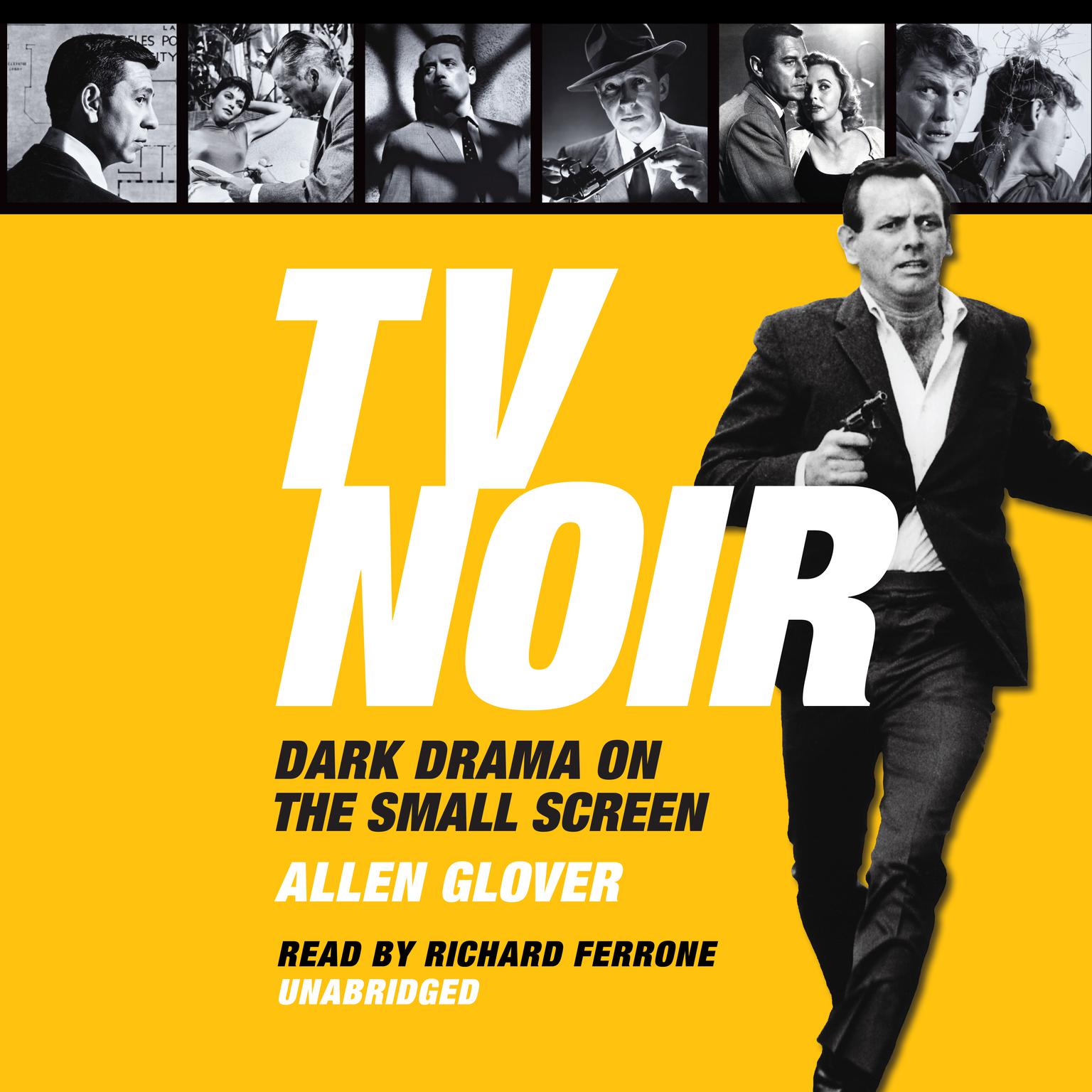 Play Audiobook Sample
Play Audiobook Sample
TV Noir: Dark Drama on the Small Screen Audiobook
 Play Audiobook Sample
Play Audiobook Sample
Quick Stats About this Audiobook
Total Audiobook Chapters:
Longest Chapter Length:
Shortest Chapter Length:
Average Chapter Length:
Audiobooks by this Author:
Publisher Description
The pioneering, incisive survey of noir on television—the first of its kind
Noir—as a style, movement, or sensibility—has its roots in hard-boiled detective fiction by writers like Chandler and Hammett, and films adapted from their novels were among the first called “film noir” by French cinéastes. But film isn’t the only medium with a taste for a dark story.
Hundreds of noir dramas have been produced for television, featuring detectives and femmes fatales, gangsters, and dark deeds, continuing week after week, with a new disruption of the social order. In TV Noir, television historian Allen Glover presents the first complete study of the subject. Deconstructing its key elements with astute analysis, from NBC’s adaptation of Woolrich’s The Black Angel to the anthology programs of the ’40s and ’50s, from the classic period of Dragnet, M Squad, and 77 Sunset Strip to neo-noirs of the ’60s and ’70s including The Fugitive, Kolchak, and Harry O., this is the essential volume on TV noir.
Download and start listening now!
“Essential for noir lovers, especially those who have exhausted the film canon and are hungry for more.”
— Library Journal
TV Noir Listener Reviews
Be the first to write a review about this audiobook!
About Allen Glover
Allen Glover is a film and television historian. As a curator at the Paley Center for Media, he created exhibitions on such cultural icons as David Bowie, Rod Serling, Robert Altman, and Buster Keaton. He lives in Los Angeles.
About Richard Ferrone
Richard Ferrone recorded over 150 audiobooks including thrillers, romances, science fiction, and inspirational novels. He won the prestigious Audie Award and was a finalist for four Audie Awards, including for Best Solo Male Narrator. He was named an AudioFile "Voice of the Last Century" and a "Rising and Shining Star." He earned many AudioFile Earphones Awards, including being named the 2011 Best Voice in Mystery and Suspense as well as the 2009 Best Voice in Science Fiction and Fantasy. A science fiction fan, he narrated Kim Stanley Robinson’s Mars trilogy. He also narrated works by James Patterson, Walter Mosley, John Sandford, Eric Van Lustbader, and Stuart Woods.


